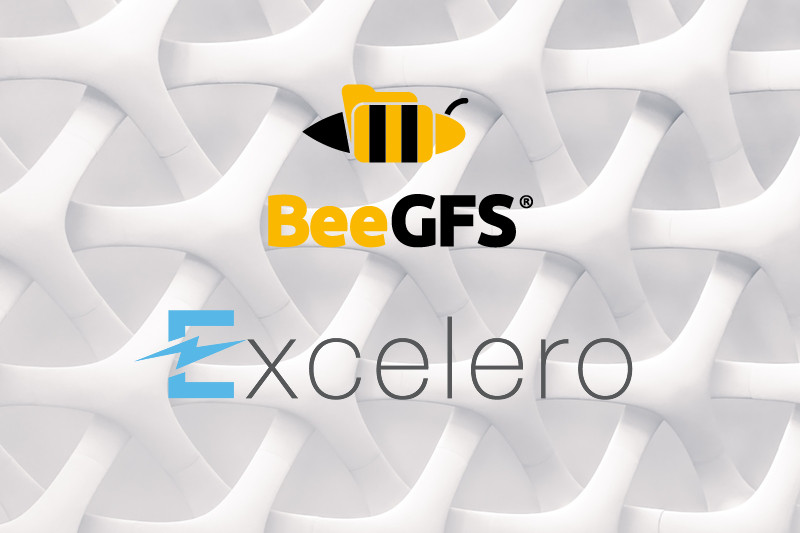Excelero and ThinkParQ announced that their joint go-to-market relationship is bearing fruit and the firms have successfully integrated Excelero’s NVMesh software-defined block storage solution for shared NVMe at local latency along with ThinkParQ’s leading parallel cluster file system BeeGFS.
Excelero NVMesh enables shared NVMe across any network and supports any local or distributed file system. Customers benefit from the performance of local flash with the convenience of centralized storage while avoiding proprietary hardware lock-in and reducing the overall storage TCO.

Combining the Excelero NVMesh with a parallel cluster filesystem like BeeGFS, make the solution perfect for different uses cases and workloads like HPC, AI, BigData, …
Excelero and ThinkParQ have deployed NVMe storage clusters with BeeGFS and NVMesh to increase productivity of advanced GPU compute clusters. These organisations experienced the storage bottleneck issue endemic to AI – that I/O intensive applications cannot be processed fast enough even on GPU-based systems. As a result, IT teams often copy datasets in and out locally, which is an inefficient and time-consuming process.
Benchmark results from early deployments spotlight the maximum resource utilisation and flexibility that are possible from combining the two solutions – performance that is perfectly suited for data-intensive workloads such as high performance computing (HPC), AI, ML, and analytics.
“With Excelero’s NVMesh, our customers have access to an ultra-low latency, high performance approach to scale-out storage” said Frank Herold, CEO of ThinkParQ. “We’ve been impressed with NVMesh’s ability to deliver the high IOPS and ultra-low latency of NVMe drives over the network with highly available volumes – as well as options for distributed erasure coding and BeeGFS’ unmatched ability to efficiently handle all kinds of access patterns and file sizes.”
To demonstrate the possibilities of this new scale-out infrastructure, the companies used the industry standard mdtest and IOR benchmarks. The test system was a compact 2U 4-server chassis with a total of 24 NVMe drives, connected via a 100Gbit RDMA network to 8 BeeGFS client compute nodes. Tests were run on the exact same hardware configuration with BeeGFS utilising the direct-attached NVMe vs. BeeGFS utilising NVMesh logical volumes. Taking advantage of NVMesh to offload mirroring operations, BeeGFS file create operations were boosted 3x, while metadata read operations were boosted 2.5x. For small random file access, which is often considered to be especially critical for application efficiency, NVMesh’s low latency technology boosted BeeGFS 4K write IOPS to 1.25 million per second, a 2.5x improvement. By leveraging NVMesh distributed erasure coding for BeeGFS, customers can get up to 90% usable capacity while still tolerating drive failures. All the while, achieving 75GB/s streaming throughput from this entry-level system.
“You can’t build tomorrow’s enterprise on yesterday’s infrastructure,” said Lior Gal, CEO and co-founder of Excelero. “We’re delighted at how smoothly NVMesh and BeeGFS work together, and the way we enable organisations to work without compromise to either IT teams or end users. We look forward to working further with ThinkParQ so that more organisations worldwide can maximise their NVMe ROI and the efficiency of their entire operations.”



